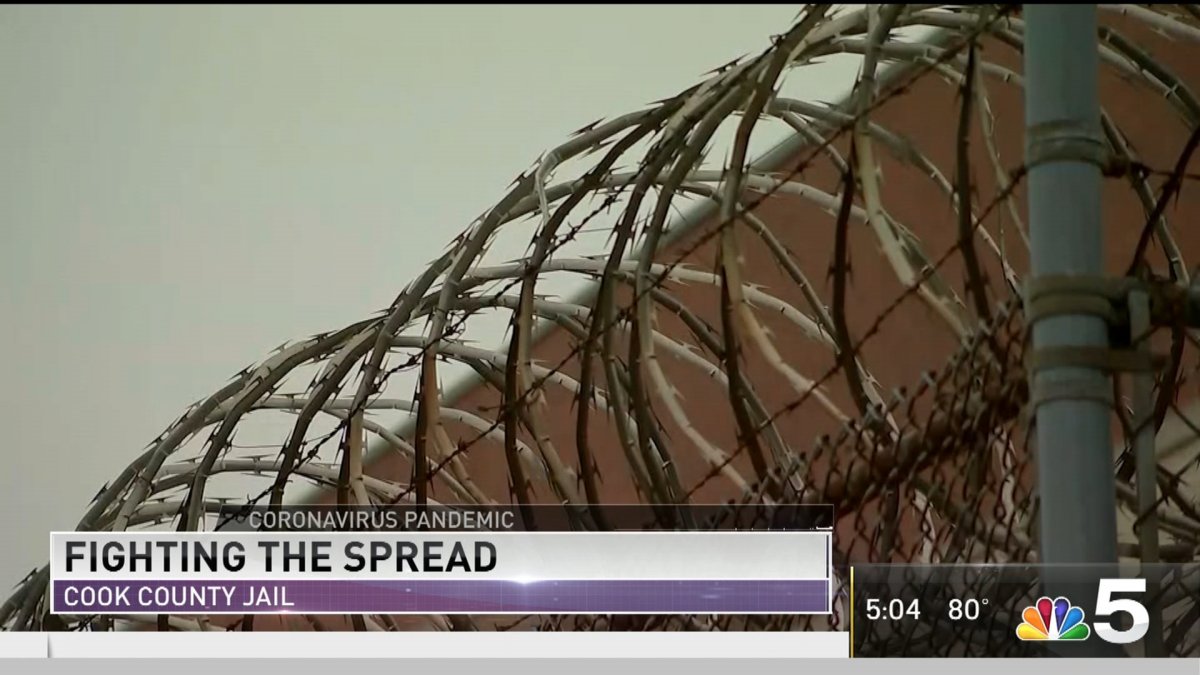
Earlier this year the Cook County Jail was a hotspot of new coronavirus cases, but today the CDC is crediting the facility for a big turnaround to keep inmates and employees safe. NBC 5’s Charlie Wojciechowski reports.
Early in the coronavirus pandemic, the virus rapidly moved through Cook County Jail, but according to a new study released this week, quick and decisive action helped to stem the tide and bring the contagion under control.
The study, authored by doctors in the Cook County Health System and officials from Cermak Health Services and the Centers for Disease Control, pointed to multiple strategies that paid off in a big way in stemming the flow of new cases at the facility.
“We stuck with science from day one,” Cook County Sheriff Tom Dart said. “As a result of that, while all around the jail the number of positives were going up on a straight trajectory, we not only bent our curve, we killed off the curve.”
The study found that the outbreak was reversed due to numerous key factors, including quarantine and isolation, limited movement of detainees and staff, the creation of an off-site isolation and quarantine facility, and aggressive testing protocols by Cermak Health Services, according to a press release.
As things stand now, just 11 of the nearly 5,000 detainees in custody at the jail are positive for the virus.
At one point, the jail had over 400 active cases of the virus in April.
Because of the facility’s success in managing the virus, Cook County Jail was one of the first in the nation to allow visitations to resume, and is now doing approximately 100 per day. Dart says this decision has had a remarkable impact on the mood of those inside the jail walls.
Local
In summing up the successes of the Cook County Sheriff’s Department, the CDC credits aggressive action on the part of officials for the downturn in cases.
“Effective response to the COVID-19 outbreak at CCJ demonstrates the need for dynamic and aggressive application of intervention strategies, but also shows how timely response can reduce case counts and prevent morbidity and mortality in correctional or detention facilities,” the study says.
Still, officials say they are prepared to battle the virus again if there is a resurgence in cases.
“We are not out of the woods, and we will remain vigilant,” Connie Mennella, chair of correctional health, said.